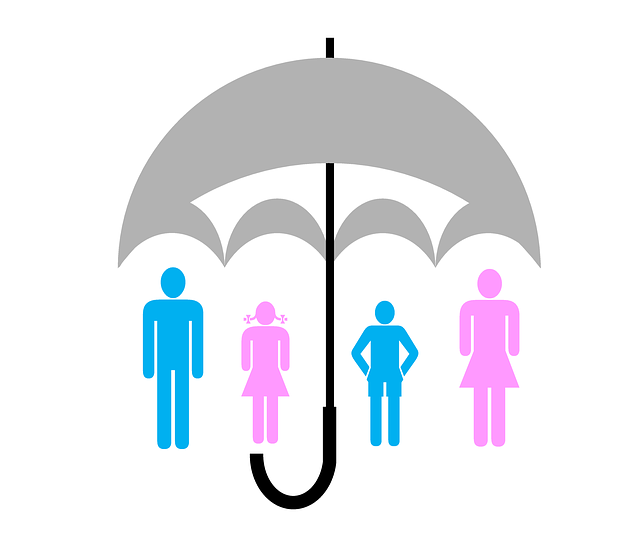Business Interruption Insurance (BII) is a crucial safety net for companies facing unexpected events causing operational disruptions and income loss. It compensates for ongoing expenses and potential revenue losses during temporary closures or reduced productivity due to covered perils like natural disasters, cyberattacks, civil unrest, and equipment failure. Understanding policy exclusions, aligning coverage with risk profile, and prioritizing lost sales replacement or fixed cost protection is essential for effective BII selection in today's unpredictable business environment.
“Unforeseen events can disrupt businesses, leading to significant losses. This is where Business Interruption Insurance steps in as a crucial safety net. Our article guides you through the essential aspects of this powerful risk management tool. We explore what it covers, from closure due to disasters to economic downturns. Learn when it’s vital for your business and key components to consider. Discover various coverage types and tips for choosing the right policy. Get ready to navigate disruptions with confidence.”
Understanding Business Interruption Insurance: What It Covers

Business Interruption Insurance is a crucial safety net for businesses facing unexpected events that disrupt operations and result in loss of income. This type of insurance provides financial protection during periods of temporary closure or reduced productivity due to covered perils such as natural disasters, cyberattacks, civil unrest, or equipment failure.
In the event of a covered incident, Business Interruption Insurance can help cover ongoing expenses like rent, wages, and utilities while operations are suspended. It also compensates for potential revenue losses by offsetting the difference between pre-disruption earnings and post-disruption income. This ensures that businesses have the financial resources to maintain their stability and recover more swiftly from unforeseen interruptions.
When Is Business Interruption Insurance Necessary?

Many businesses, especially those with high operational costs and dependency on daily revenue, should consider Business Interruption Insurance. This type of insurance is crucial when a business faces unexpected events that halt operations, leading to significant financial losses. Whether it’s a natural disaster, cyberattack, or civil unrest, such interruptions can cripple a company, causing a snowball effect of expenses without revenue influx.
Business Interruption Insurance provides a safety net by covering the loss of income during these unforeseen periods. It helps businesses maintain stability and recover faster. Key events that trigger the need for this insurance include significant property damage, supply chain disruptions, or when regulatory changes force operations to cease temporarily.
Key Components and Exclusions to Know

When considering insurance for loss of income, especially in relation to business interruption, there are several key components and exclusions to keep in mind. Business Interruption Insurance (BII) is designed to protect businesses from financial losses incurred during unforeseen events that disrupt normal operations. These events can range from natural disasters like floods or fires to more subtle interruptions such as cyberattacks or civil unrest.
However, it’s crucial to understand the scope of coverage and potential exclusions. Common exclusions in BII policies include events like government actions, war, terrorism, and strikes. Additionally, some policies may not cover losses due to market fluctuations or economic downturns. Understanding these limitations is vital to ensuring that your insurance truly protects against the specific risks your business faces.
Types of Coverage Available for Income Loss

When considering insurance for loss of income, individuals and businesses have several options designed to protect their financial stability during challenging times. One prominent type is Business Interruption Insurance (BII), which provides coverage for losses incurred when a business must cease or reduce operations due to unforeseen events like disasters, civil unrest, or even a global pandemic. BII can help replace income lost during the recovery period, ensuring businesses can reopen and bounce back stronger.
In addition to BII, other types of income protection include disability insurance, which replaces a portion of your income if you become unable to work due to illness or injury. Some policies also offer death benefits, providing financial security for dependents in the event of the policyholder’s passing. Understanding these coverage options is crucial in selecting the right plan to safeguard against potential income loss.
How to Choose the Right Policy for Your Business

When selecting an insurance policy for loss of income, particularly Business Interruption Insurance, it’s crucial to tailor your choice to your business’s unique needs. Start by assessing the potential risks and consequences of a prolonged shutdown. Consider factors such as your industry’s resilience, essential operations, and cash flow requirements. For instance, a retail business might prioritize coverage that replaces lost sales during a closure, while a service-based enterprise may focus on protecting its fixed costs during downtime.
Next, examine the policy’s terms, including the covered events, exclusions, and waiting periods. Look for policies offering comprehensive protection against various disruptions like natural disasters, cyberattacks, or civil unrest. Ensure that the coverage limits align with your business’s financial capacity to recover. Additionally, verify the policy’s renewal process and any potential increases in premiums to guarantee long-term affordability and stability for your operations.
Real-World Scenarios and Case Studies

In today’s unpredictable business landscape, where unforeseen events can disrupt operations at any moment, having the right insurance in place is paramount. Real-world scenarios illustrate the critical need for Business Interruption Insurance (BII). For instance, a small retail business owner may face closure due to a sudden fire, not just damaging their physical store but also disrupting their income flow from lost sales and disrupted supply chains. Without BII, they might struggle to recover financially.
Another case involves a tech startup whose development team encounters a critical bug in their software, causing a delay in product launch. This unexpected set-back results in lost revenue opportunities and damaged client relationships. However, with Business Interruption Insurance, the company can claim compensation for this unforeseen event, helping them to stabilize operations, re-evaluate strategies, and mitigate financial losses until normal business activities resume.
